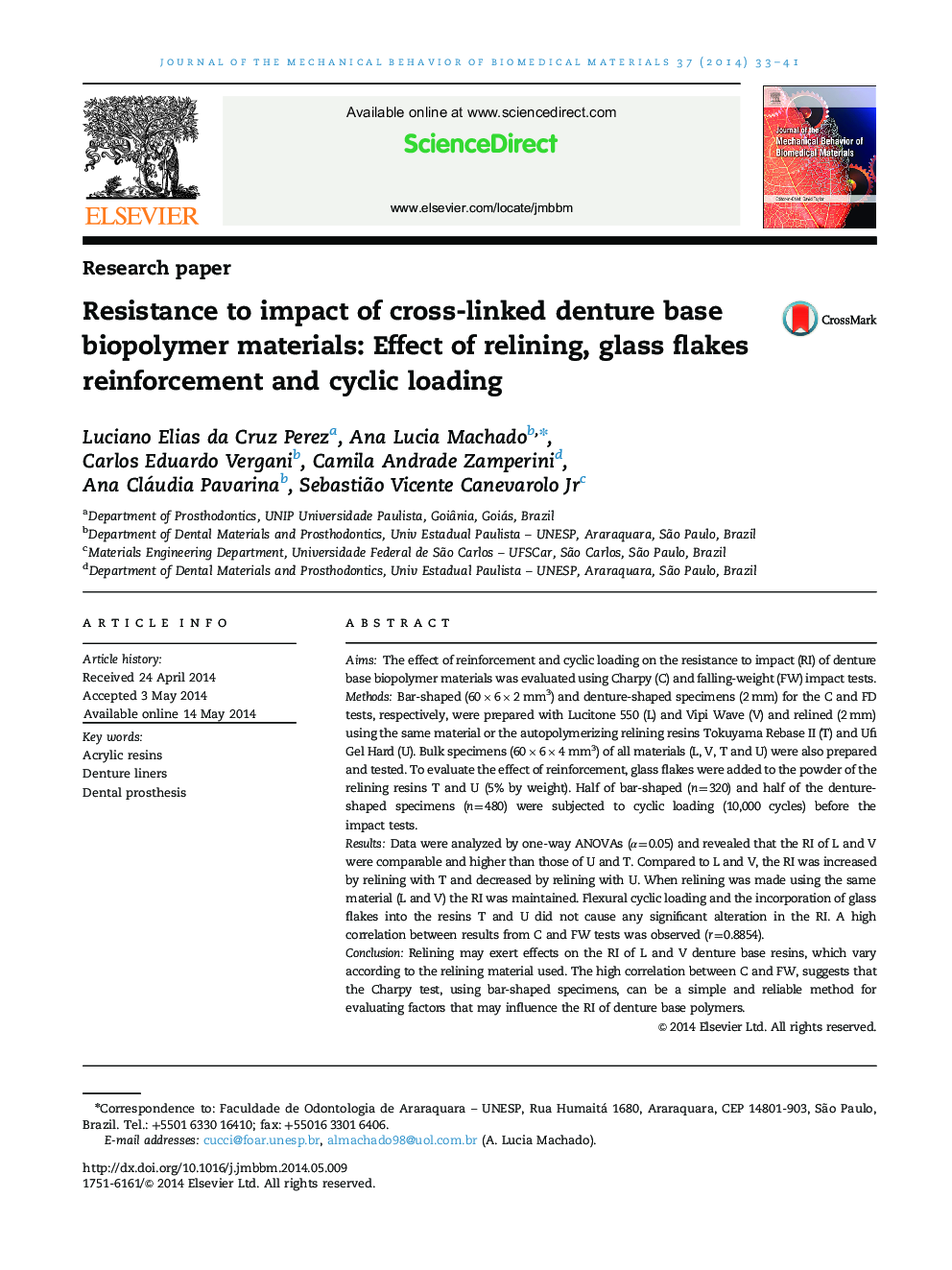| Article ID | Journal | Published Year | Pages | File Type |
|---|---|---|---|---|
| 810716 | Journal of the Mechanical Behavior of Biomedical Materials | 2014 | 9 Pages |
AimsThe effect of reinforcement and cyclic loading on the resistance to impact (RI) of denture base biopolymer materials was evaluated using Charpy (C) and falling-weight (FW) impact tests.MethodsBar-shaped (60×6×2 mm3) and denture-shaped specimens (2 mm) for the C and FD tests, respectively, were prepared with Lucitone 550 (L) and Vipi Wave (V) and relined (2 mm) using the same material or the autopolymerizing relining resins Tokuyama Rebase II (T) and Ufi Gel Hard (U). Bulk specimens (60×6×4 mm3) of all materials (L, V, T and U) were also prepared and tested. To evaluate the effect of reinforcement, glass flakes were added to the powder of the relining resins T and U (5% by weight). Half of bar-shaped (n=320) and half of the denture-shaped specimens (n=480) were subjected to cyclic loading (10,000 cycles) before the impact tests.ResultsData were analyzed by one-way ANOVAs (α=0.05) and revealed that the RI of L and V were comparable and higher than those of U and T. Compared to L and V, the RI was increased by relining with T and decreased by relining with U. When relining was made using the same material (L and V) the RI was maintained. Flexural cyclic loading and the incorporation of glass flakes into the resins T and U did not cause any significant alteration in the RI. A high correlation between results from C and FW tests was observed (r=0.8854).ConclusionRelining may exert effects on the RI of L and V denture base resins, which vary according to the relining material used. The high correlation between C and FW, suggests that the Charpy test, using bar-shaped specimens, can be a simple and reliable method for evaluating factors that may influence the RI of denture base polymers.
